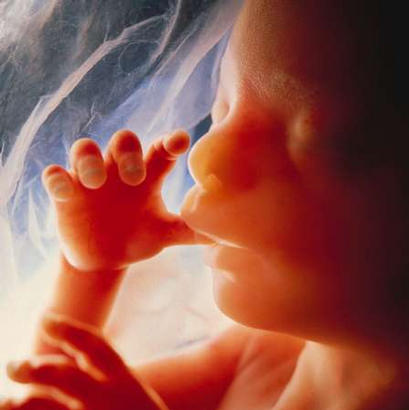Sarah Holliday | The Washington Stand
On Monday, former President Donald Trump released a video statement outlining his view that abortion restrictions should be left to the states. He announced, “My view is now that we have abortion where everybody wanted it from a legal standpoint, the states will determine by vote or legislation or perhaps both, and whatever they decide must be the law of the land. In this case, the law of the state.”
The former president claimed that federal bans on abortion are “not popular with voters and could cost the Republicans elections.” But in response to Trump’s remarks, Senator Lindsey Graham (R-S.C.), a close ally to Trump, fired back in a statement on Monday, “I respectfully disagree with President Trump’s statement that abortion is a states’ rights issue.” While the senator admits the states have a major role to play, he stands firm in the belief that some form of federal limit is required to protect life.
As the New York Post reported, “Graham … went out on a limb to propose a federal ban on most abortions after 15 weeks — with exceptions for rape, incest or risks to the life or health of the mother — just months after the Supreme Court overturned Roe v. Wade in June 2022.” Trump criticized the move, claiming, “The Democrats are thrilled with Lindsey, because they want this issue to simmer for as long a period of time as possible.”
According to The Washington Post, “Graham’s position on abortion is not new,” but his “criticism of Trump marked a rare break between the two in recent years.” Despite the backlash Graham received from the former president for his remarks, the South Carolinian asserted he will continue pushing for a “national minimum standard limiting abortion.”
On Tuesday’s episode of “Washington Watch,” he told Family Research Council President Tony Perkins, “[T]his is tough politics. … But we got to sit down and think and pray about what comes next for the pro-life movement.” Perkins agreed. “[A]s Christians, we know that we must protect the most innocent among us. And creating a culture of life requires work at every level of government.”
As for passing stronger restrictions on abortion, Graham pointed out, “[Y]ou’ll never have the votes unless you make an effort to get the votes. So, what am I trying to do? I’m trying to find consensus.” He explained that there’s consensus for 15-week protections, as his proposal articulates, because that is when “the child can suck his thumb [and is] capable of feeling pain.” And he argued this type of legislation is supported by a large sum of Americans. “I understand the state rights issue to a point,” he said, “but I am not going to sit on the sidelines and watch California and New York and other states allow abortion on demand up to the moment of birth without trying to do something about it.”
Perkins made clear that he is “for protecting life from the moment of conception on” but added, “I understand that in this republic … we’ve got to come to a consensus on certain points. So, we work, and we get to a point, and then we work, and we get to another point. That’s how it works.” To which Graham urged, “That’s the way it works in your personal life. That’s the way it works in your political life.” Fifteen weeks is “a minimum standard,” he insisted. “It doesn’t override state laws [that have stronger protections],” but it does set a minimum and help highlight what the pro-life movement is really about.
Graham continued, “Here’s what I want the pro-life movement to be about: the child. … I want it to be a joyful movement. I want it to be helping the mother make good decisions. I want it to be a loving and caring movement.” But in order to do this, he contended, it cannot simply be a “state’s rights issue” because it “takes away from the fact that it’s about the child all the time, every time.” He emphasized that “geography is not the point of the pro-life movement. The point of the pro-life movement is protecting unborn children to the best you can and find consensus.”
The senator compared these circumstances to the Dred Scott decision in 1857, which ruled “Congress had no authority to ban slavery from a federal territory.” Graham stated, “There was a time in our country where some states could own slaves if they wanted to, and other states didn’t have to. You know what we said? ‘Nobody should own a slave.’” As such, he urged, “They’ll come a day when science and education … will convince the American people that late-term abortions are barbaric. And I am going to keep fighting [and] advocating for this because I do believe late abortions are barbaric.”
He declared, “My goal as a member of the Senate is to continue to educate the American people about the unborn and try to find consensus and protect them where we can.”
As Perkins said, “Republicans must build consensus for creating a culture of life that is embraced by all. And that’s how we got here. … It took time, but we got there because we never abandoned this basic understanding that all life has value because it is created in the image of God. And there is a role … at the states … but there’s [also] a role at the federal level.
SOURCE: THE WASHINGTON STAND

